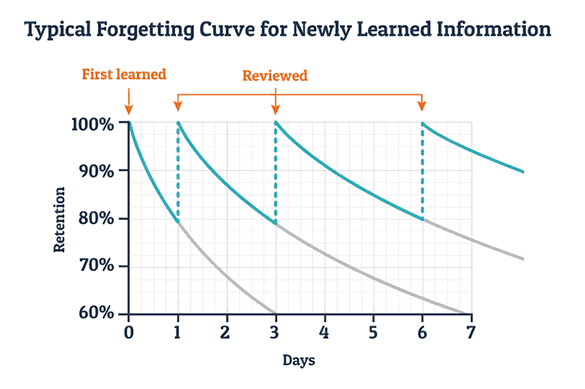Volumes of educational research, teacher, parent and student experience, and a copious slug of (perceived) common sense, is reflected in the advice that any prospective exam goer might access.
The vast majority of it is beneficial, and subtle differences in emphasis from a host of well intentioned ‘experts’ can speak to the varied strengths and needs of those seeking guidance. Our Deputy Head, Mr Boardman, wrote a super blog ‘Ten top tips for better revision‘ last year on this very topic and the feedback we have received suggests his words have been well received. I don’t expect such accolades, but the following might strike a chord with some. Let’s see.
What follows might be regarded as ‘big picture’ stuff. A frame of reference for effective exam preparation. I’ll leave the detail about specific activities and techniques to others, not least because the individual, with guidance, has to find out what works best for them. Anyway, back to the bigger picture, here it comes…
Prior effort, ensuring notes are complete and understood, and meaningful revision was done for bite-size topic tests, year-end exams and mocks etc., pays off. The months and weeks in the run up to ‘final’ exams are for polishing-up knowledge and techniques. Cramming works, but only if it represents the cherry on top of a large slice of cake. So, start early, eliminate distractions, commit uninterrupted chunks of time and maintain a plan.
In essence, exams require you to recall and do things largely from memory. I don’t think I can say it any more simply than that. Therefore, exams goers should do the majority of their preparation (revision) in the manner of the test and mimic the challenge ahead – practising the very thing you are training for.
Read with focus and recall packets of information, always testing yourself and correcting errors. Speak information out loud, teach your pets and pop star posters about subjects. Working your memory is key. Casting my memory back to the 1990s, it’s fair to suggest that Iron Maiden, (Kerrang double page spread on my bedroom wall), were English Civil War experts by the time History A Level was sat, and The Stone Roses could have achieved first class honours at Durham University.
Don’t stagnate at your desk when remembering and speaking learnt information. Walk and talk around your room or better still outside in the fresh air. Write down facts from memory, rejigging lists as annotated diagrams or converting paragraphs to memory maps. Reshaping information in this way can activate greater portions of the brain. Past papers attempted under exam conditions (recalling and doing things from memory) work well.
Repeat / rehearse material, don’t just revise it once, and embed this aspect of spiralling activity into your initial revision timetable. The graph below is a familiar and powerful illustration of the value of reinforcement.
Don’t forget to look after yourself. Eat, drink and sleep healthily, and ensure you take time off, away from your work. Make space for the things you enjoy, like exercise and hobbies. And remember that a bit of pressure and stress is natural and useful. Discomfort is to be expected and welcomed and helps you to perform optimally. Don’t fret, you’ve got this.
Now go and smash it!
” … start early, eliminate distractions, commit uninterrupted chunks of time and maintain a plan.”

